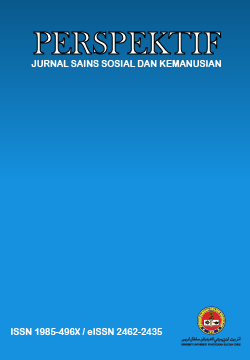A Survey of Digital Literacy among Students of Foundation Studies in Management: A Case Study in Public Higher Institution Malaysia
DOI:
https://doi.org/10.37134/perspektif.vol15.1.5.2023Keywords:
digital literacy, digital technologies, computer knowledge, foundation studentsAbstract
The ability to navigate the digital world using reading, writing, technical skills, and critical thinking together with the ability to discover, evaluate, utilize, share, and create content using information technologies is called digital literacy. Access to the Internet has increased from time to time. This showed that technology has infiltrated into our daily lives and encouraged more processes to become data-driven and virtual. This study used descriptive statistical methods to determine the digital literacy level among Foundation Studies in Management students. This study also identified reasons why students engage in digital technologies. The findings showed that female students tend to spend more hours on their cell phones and computers. Most of the student in Foundation Studies in Management responded with moderate-high agreement on their level of digital literacy, which means that most of them understand and can apply simple and fundamental computer knowledge for personal purposes and academic matters.
Downloads
References
Anthonysamy, L. (2020). Digital literacy deficiencies in digital learning among undergraduates.In Understanding Digital Industry (pp. 133-136). Routledge.
Anwar, S. (2023). Digital Learning Media in Shape Student Learning Behavior. Uzscience International Journal of Multidisciplinary Research, 1(1), 1-11.
Department of Statistics Malaysia. (2021, April 12). ICT Use and Access by Individuals and Households Survey Report, Malaysia, 2020. Retrieved March 7, 2022.https://www.dosm.gov.my/v1/index.php?r=column/cthemeByCat&cat=395&bul_id=OWUvVnV5SHI2WFU2VFhnQ2ZjTm1Bdz09&menu_id=amVoWU54UTl0a21NWmdhMjFMMWcyZz09
Heick, T., (2022). Digital Literacy: A Definition. Retrieved March 6, 2022. https://www.teachthought.com/literacy/definition-digital-literacy/
Khan, N., Sarwar, A., Chen, T. B., & Khan, S. (2022). Connecting Digital Literacy in Higher Education to the 21st Century Workforce. Knowledge Management & E- Learning, 14(1), 46-61.
Liu, Z. Y., Lomovtseva, N., & Korobeynikova, E. (2020). Online learning platforms: Reconstructing modern higher education. International Journal of Emerging Technologies in Learning (iJET), 15(13), 4-21.
Mudra, H. (2020). Digital Literacy among Young Learners: How Do EFL Teachers and Learners View Its Benefits and Barriers?. Teaching English with Technology, 20(3), 3-24.
Microsoft. (2022). Discover digital literacy courses and resources. March 7, 2022. https://www.microsoft.com/en-us/digital-literacy
Potyrała, K., & Tomczyk, Ł. (2021). Teachers in the lifelong learning process: examples of digital literacy. Journal of Education for Teaching, 47(2), 255-273.
Roschelle, J. M., Pea, R. D., Hoadley, C. M., Gordin, D. N., & Means, B. M. (2000). Changing how and what children learn in school with computer-based technologies. The future of children, 76-101.
Suša Vugec, D., & Stjepić, A. M. (2022). Digital Literacy of Digital Natives. In Technological Challenges (pp. 61-91). Springer, Cham.
Takavarasha, S., Cilliers, L., & Chinyamurindi, W. (2018). Navigating the unbeaten track from digital literacy to digital citizenship: A case of university students in South Africa’s Eastern Cape province. Reading & Writing-Journal of the Reading Association of South Africa, 9(1), 1-15.
Techataweewan, W., & Prasertsin, U. (2018). Development of digital literacy indicators for Thai undergraduate students using mixed method research. Kasetsart Journal of Social Sciences, 39(2), 215-221.
Tohara, A. J. T. (2021). Exploring digital literacy strategies for students with special educational needs in the digital age. Turkish Journal of Computer and Mathematics Education (TURCOMAT), 12(9), 3345-3358.
Downloads
Published
How to Cite
Issue
Section
License
Copyright (c) 2023 Zahayu Md Yusof, Masnita Misiran, Qing Jun Lim, Hong Quan Goh, Anis Hanisah Sobri, Nur Athirah Mahmud

This work is licensed under a Creative Commons Attribution-NonCommercial-ShareAlike 4.0 International License.





